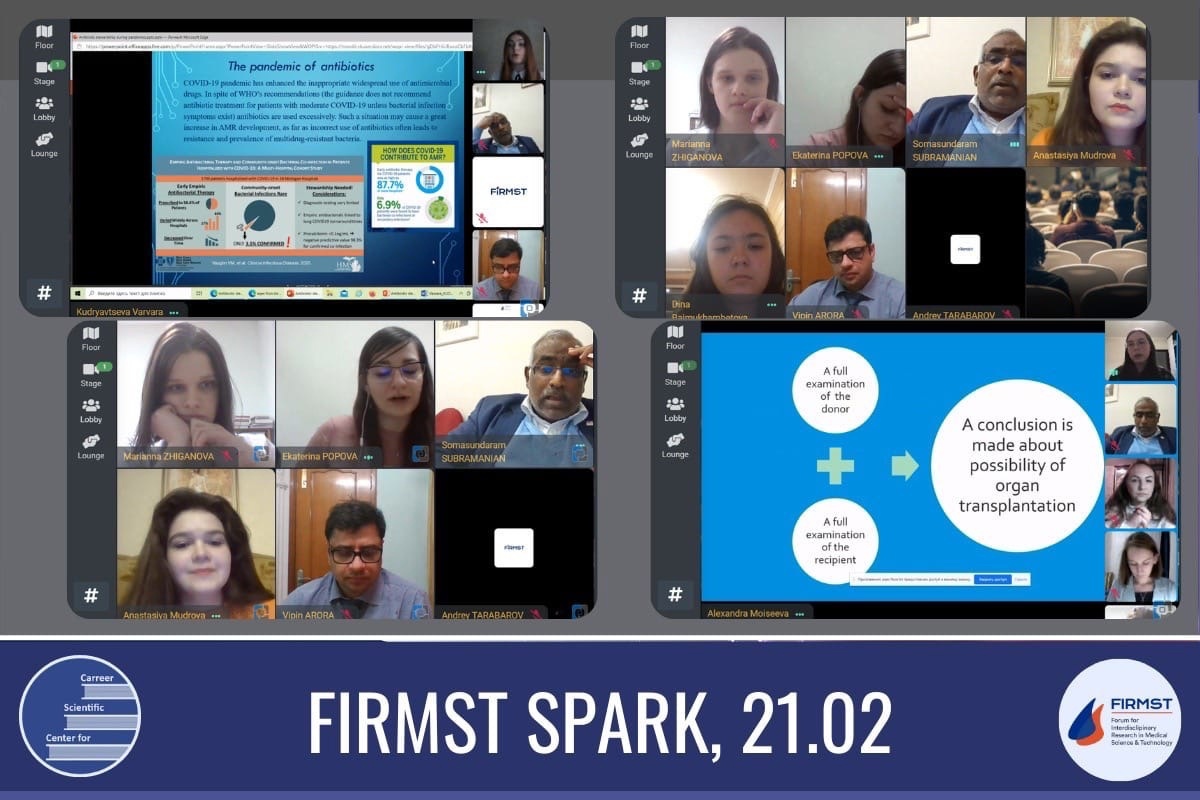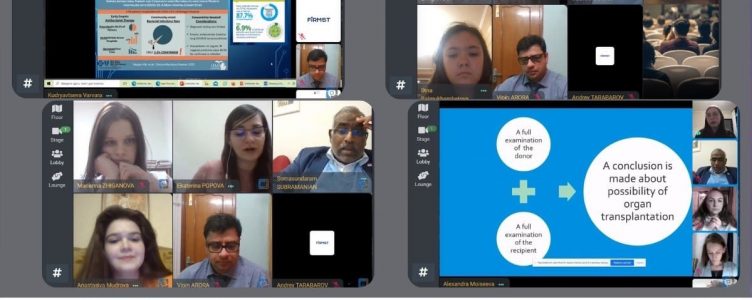The third-year students of the Medical Institute of Pitirim Sorokin Syktyvkar State University have become the best speakers at the international conference devoted to the study of biomedical research methodology FIRMST PARK. The research focuses on eating habits during the Covid-19 pandemic.
FIRMST SPARK is a unique platform for the interaction of world-class experts, world-renowned doctors, surgeons and researchers, young scientists and students from all over the world in the field of medicine and related sciences. The initiator of the event is the Voluntary Center of the I.M. Sechenov First Moscow State Medical University.
The third-year students of the Medical Institute Paridhi Khokhar and Kshetra Timilsaini decided to share the results of their research. The supervisors of these students and their work entitled as «Food habits of young people in stressful conditions during the pandemic» were the candidate of biological sciences, the senior research officer of Institute of Institute of Physiology of the Komi Scientific Centre of the Ural Branch of the Russian Academy of Sciences and the professor of the department of biochemistry and physiology at the Medical Institute Alexandra Ludinina and the docent of the department of biochemistry and physiology at the Medical Institute of Pitirim Sorokin Syktyvkar State University Zhanna Ivankova.

– We’ve been working on this project for months. First, we discussed the sample design of the research and the purpose. Then agreed on the possibility of foreign students participating in the project. The students were then familiarized with the methodology and collected the material. The basis, statistical processing and the preparation of theses were carried out by supervisors. Students were involved as necessary in the search for scientific literature. For them such a research is for the first time, the workload is heavy – says the supervisor Alexandra Ludinina.
The research focuses on the relationship between dietary habits, namely, fat diets, and the psycho-emotional status of students from different countries during the COVID-19 pandemic. In addition to a nutritional analysis, this research included the assessment of stress and depression among students living in Russia, Northern India and Nepal.
– As far as I know, this is the first time that such comparative analysis of the pandemic has been carried out in the world, – explained the supervisor Alexandra Ludinin.
The study involved 96 young people from Russia (53), India (22) and Nepal (21). The average age of the subject is 19.9±2.8 years (69 per cent of women and 31 per cent of men).
In the context of strict self-isolation and examination, the high levels of stress in young people in India and Nepal are found to be significantly higher than among Russian students – 73 percent, 95 percent and 6 percent accordingly. Depression (moderate, mild and severe) accounts for 32 percent, 29 percent and 36 percent of the students from Russia, Nepal and India, accordingly.
The study also showed a sub-optimal fatty acid balance in the diet of most students, with abundant saturated and polyunsaturated fatty acids. The least optimal balance of fatty acids is found only among Russian students studying medicine, whose symptoms of depression lead to excessive consumption of unhealthy food, carbohydrates and overeating. It should be noted that saturated fatty acids of students were overexposed, primarily at the expense of sweet – chocolate. The shortage of polyunsaturated fatty acids in Russian students is related to insufficient consumption of fatty fish varieties.
– In the section «Pandemic COVID -19» there about six presentations were performed, our presentation was immediately distinguished by academicism, scale and competent methodological approach, – noted the supervisor Zhanna Ivankova.
The places in the section «Pandemic COVID-19» were distributed as follows: 1 place – Paridhi KHOKHAR (India), Kshetra TIMILSAINA (Nepal); 2 place – Hritika SHARMA (India), Tanusri TETARBE (India).
– The students performed their presentation in the section with confidence and answered the questions of the experts of the section in full. There were many questions, as the topic was of great interest to the experts. As a result, they decided that the work of Paridhi and Kshetra deserved the 1st place! Moreover, the work will be published in the British journal “Physician”, – said Alexandra Ludinina, the supervisor.
– I like to participate in these events if I have time. The most important thing here is that it was by enlisting the help and support of our supervisors that we made this research, – a third-year student at Medical Institute Paridhi Khokhar admitted.
Yekaterina Lutoeva, Journalism, the 1st year student

